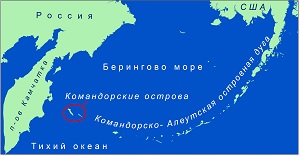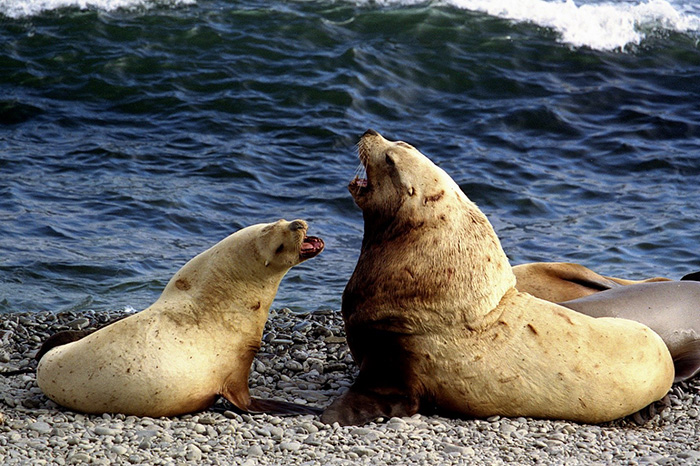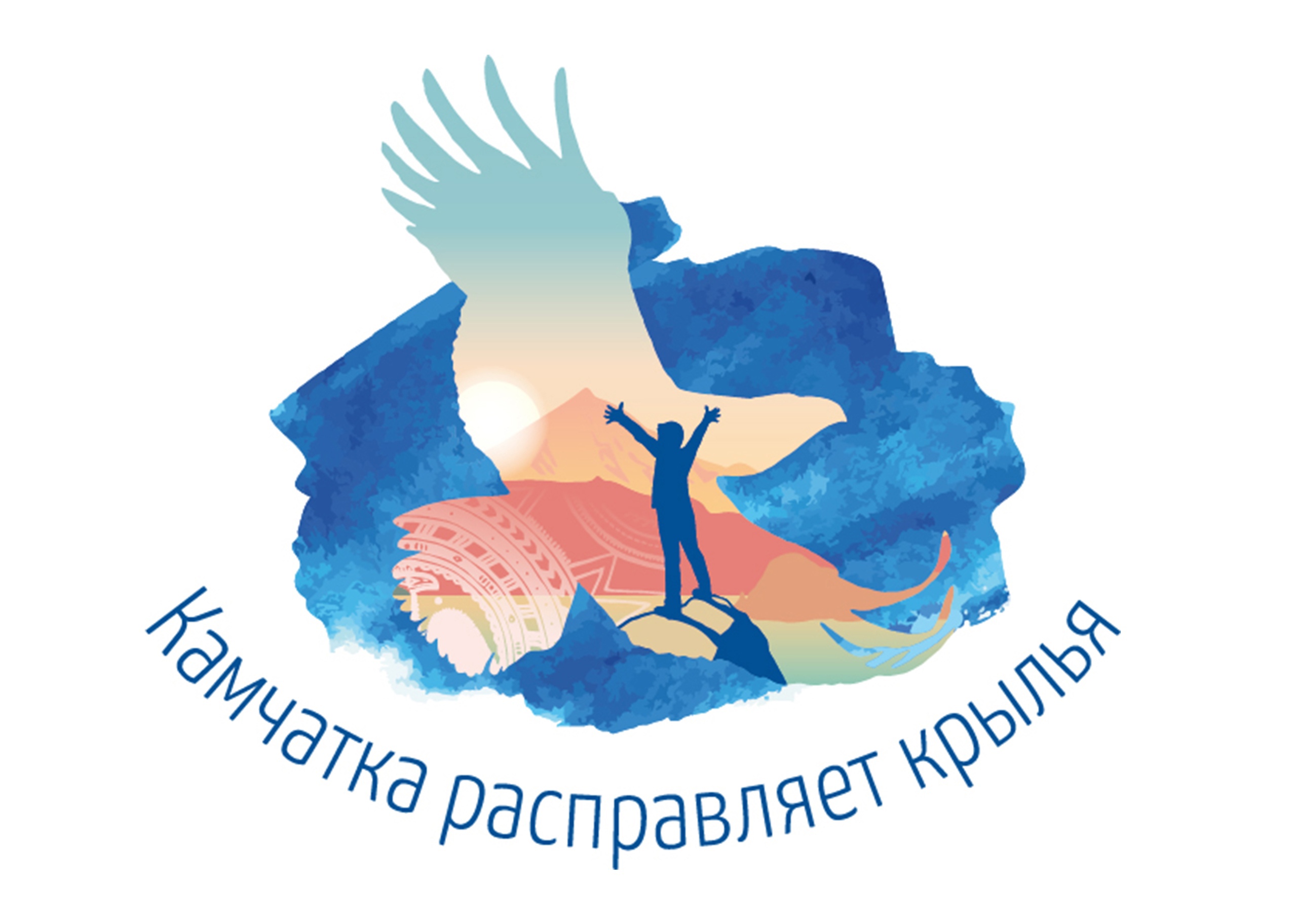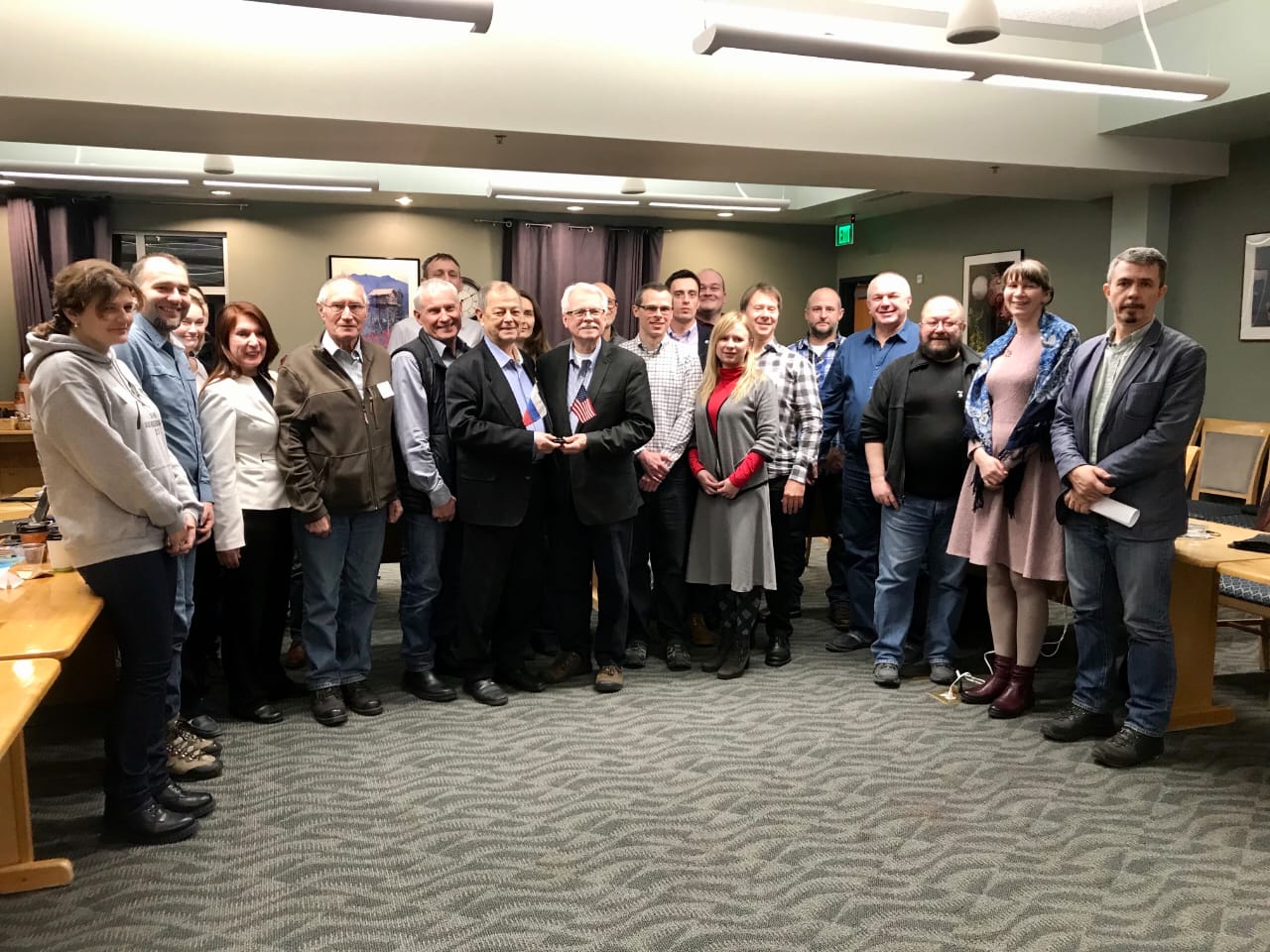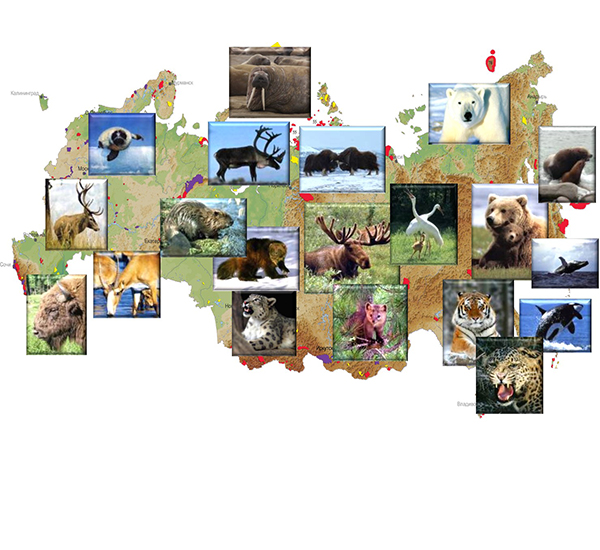From January 31 to February 3, with the participation of the Commander Islands Nature Reserve, a meeting of the Russian-American working group on the Marine Mammals project took place as part of Problem V of the Russian-American Agreement on Cooperation in the Field of Environmental Protection and Natural Resources. Researchers gathered to exchange the results of marine mammal studies over the past year and a half. The meeting was hosted by the American side in Anchorage.
The main task of the meetings, which take place every one and a half to two years, is to promote cooperation between scientists studying various types of marine mammals living in the waters of the two countries. The group members not only keep each other up to date, but also participate in joint projects that allow a more complete study of the life of these species in the changing world.
Thus, the absence of sea ice in many regions where whole ecosystems are associated with icing cycles has become the most frequently raised and alarming topic. The first consequences of these global changes were also noted, for example, the displacement and expansion of the ranges of many predatory fish, changes in food networks and radical changes in life of species such as ice seals and polar bears.
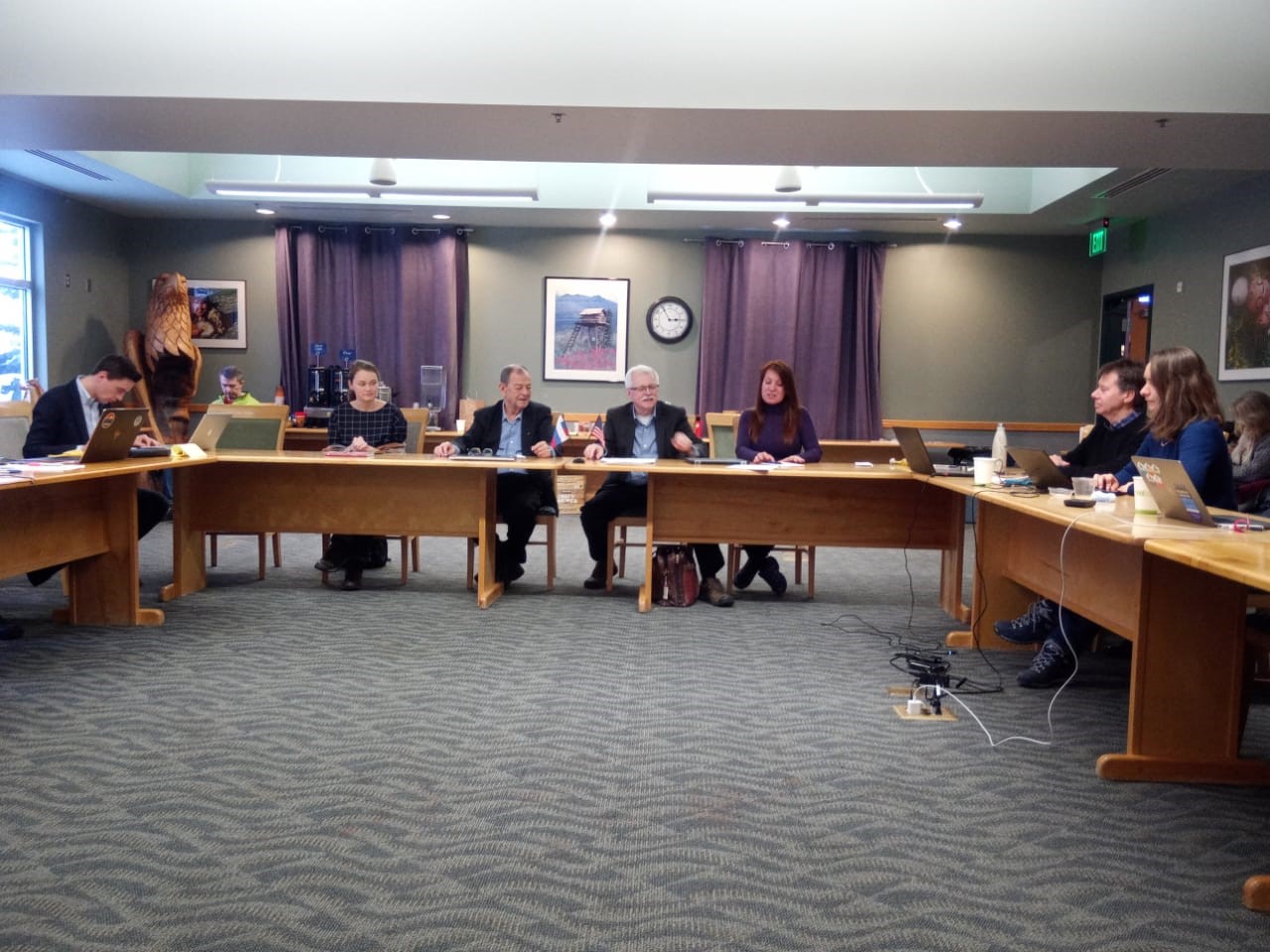
Meeting of the Russian-American Working Group in Anchorage, the USA
Among other important topics, new methods of using artificial intelligence in counting large gatherings of animals, aerial photography, rescue of marine mammals entangled in networks, and the study of echolocation of cetaceans were highlighted.
This is not the first time the Commander Islands Nature Reserve has participated in meetings of the working group. This time, the head of the Development and Environmental Education Department Anastasia Barsukova presented a report on the work of the Scientific Department prepared by Evgeny Mamaev, Deputy Director for Science. In it, we shared the monitoring results of several species at once: sea lion, fur seal, antur seal and sea otter.
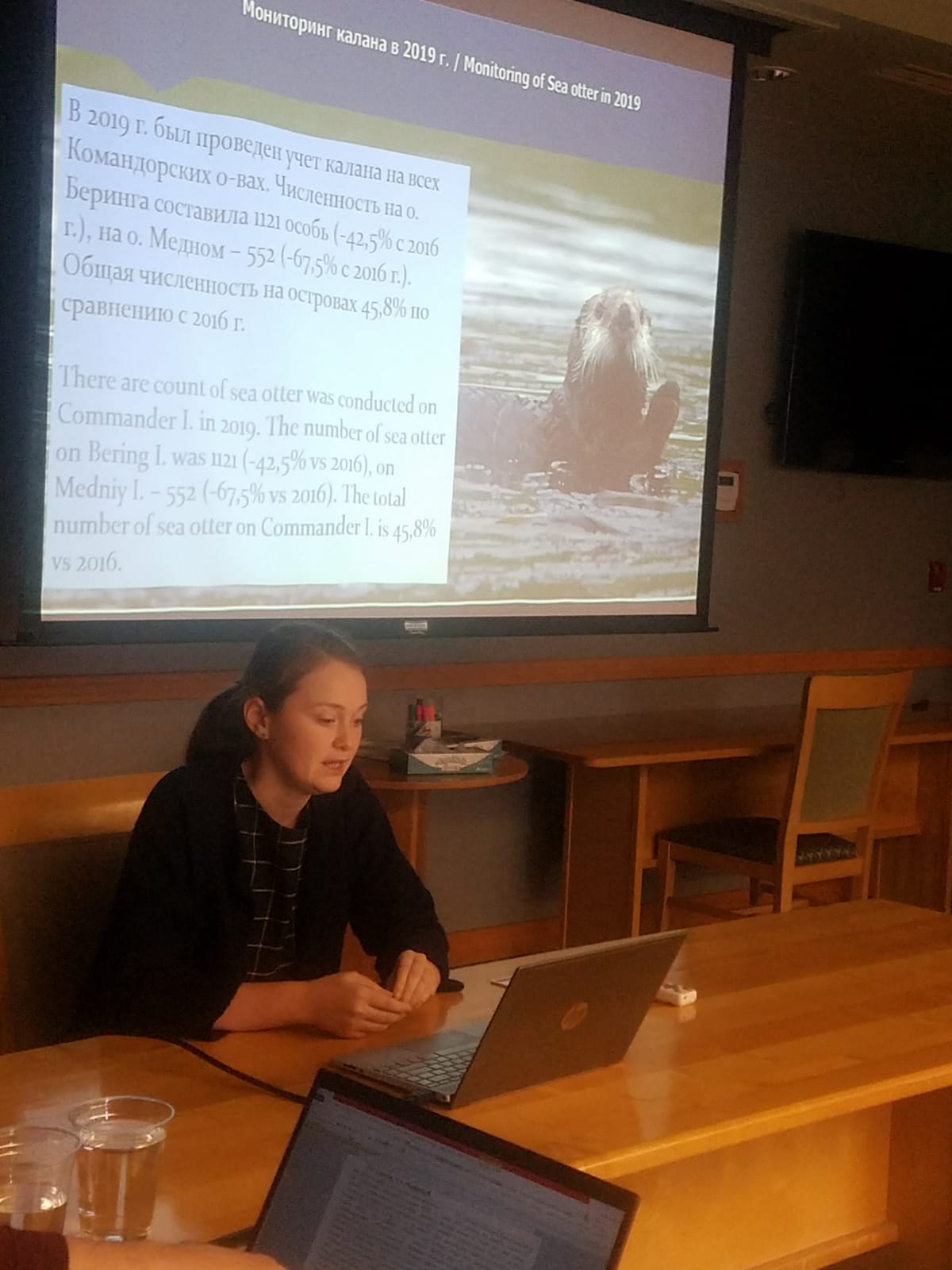
Report by Anastasia Barsukova at working group in Anchorage
The environmental monitoring program includes year-round monitoring of Steller sea lions, as a result of which we know that the number of animals older than a year in 2019 was 447 individuals and 181 puppies.
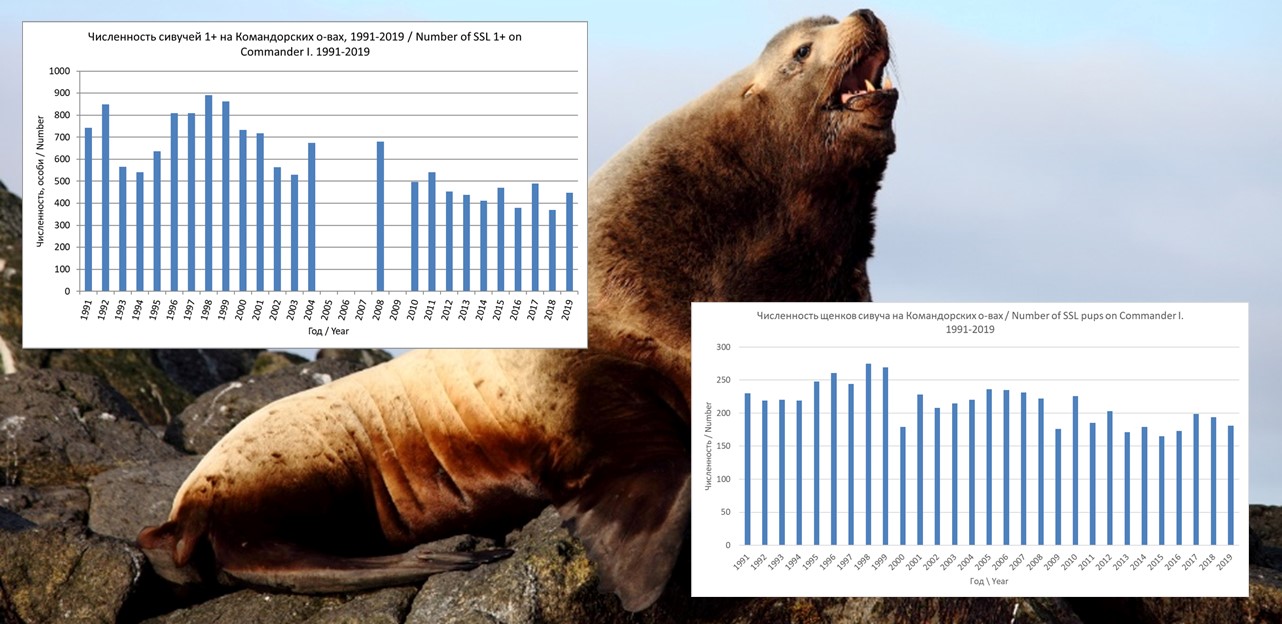
The population dynamics of Steller sea lions on rookeries of the Commander Islands from 1991 to 2019.
To account for the northern fur seal, the reserve continues to use the proven method of aerial observations using a quadrocopter. When flying at least 40 meters, we were able to find out that the number of fur seals in 2018 was 254,749 individuals. Data for 2019 is still being processed.
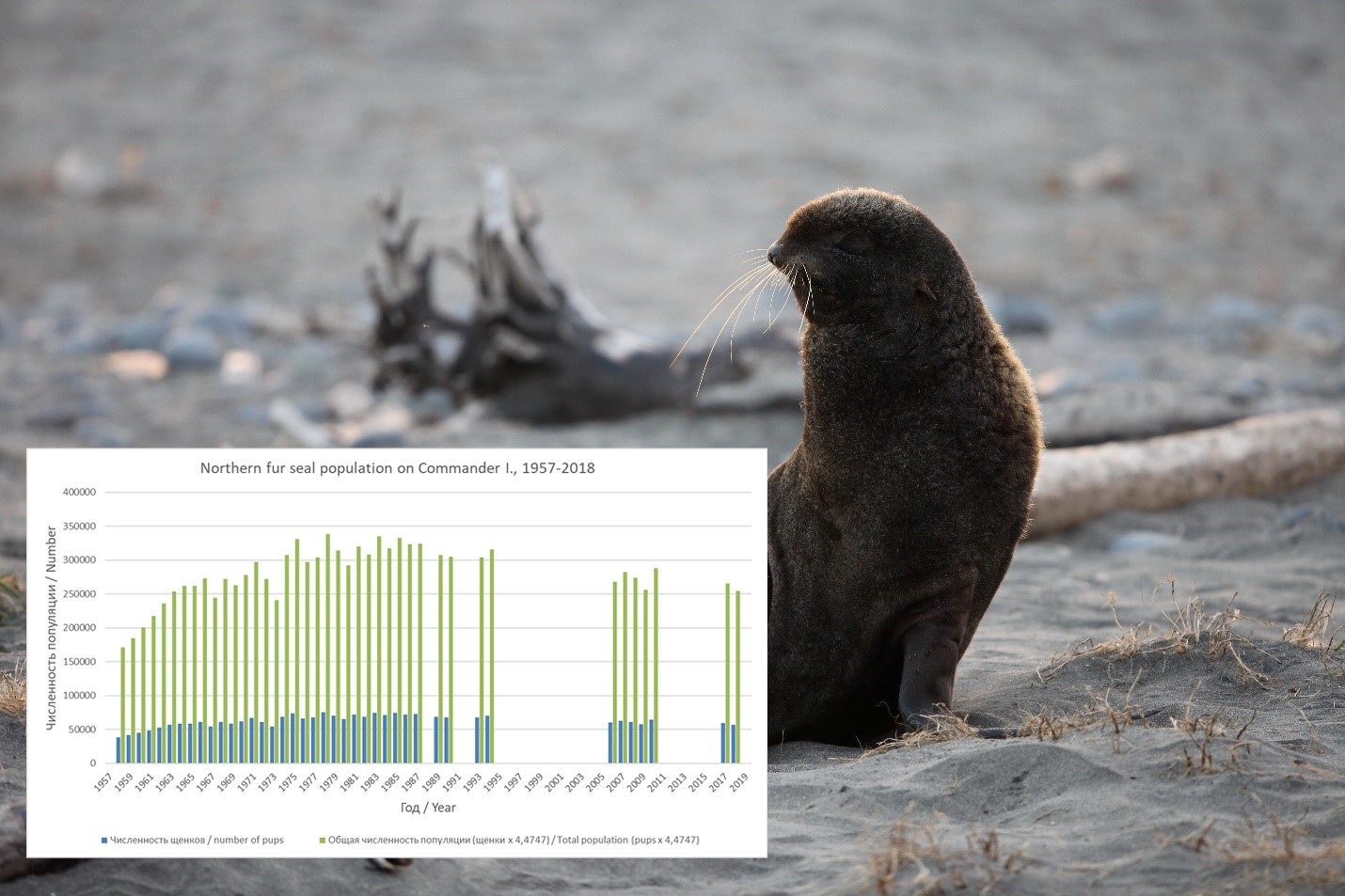
The dynamics of the number of northern fur seals on the rookeries of the Commander Islands
Using a drone helps not to frighten off fur seals and anturs. However, the flight altitude for antur counts is even higher and reaches 60 meters. The abundance of this species on the Commander Islands is estimated at 3244 individuals for 2019. In addition, we shared the experience of satellite tagging of 4 harbor seals - the data received from the sensors is still being processed.
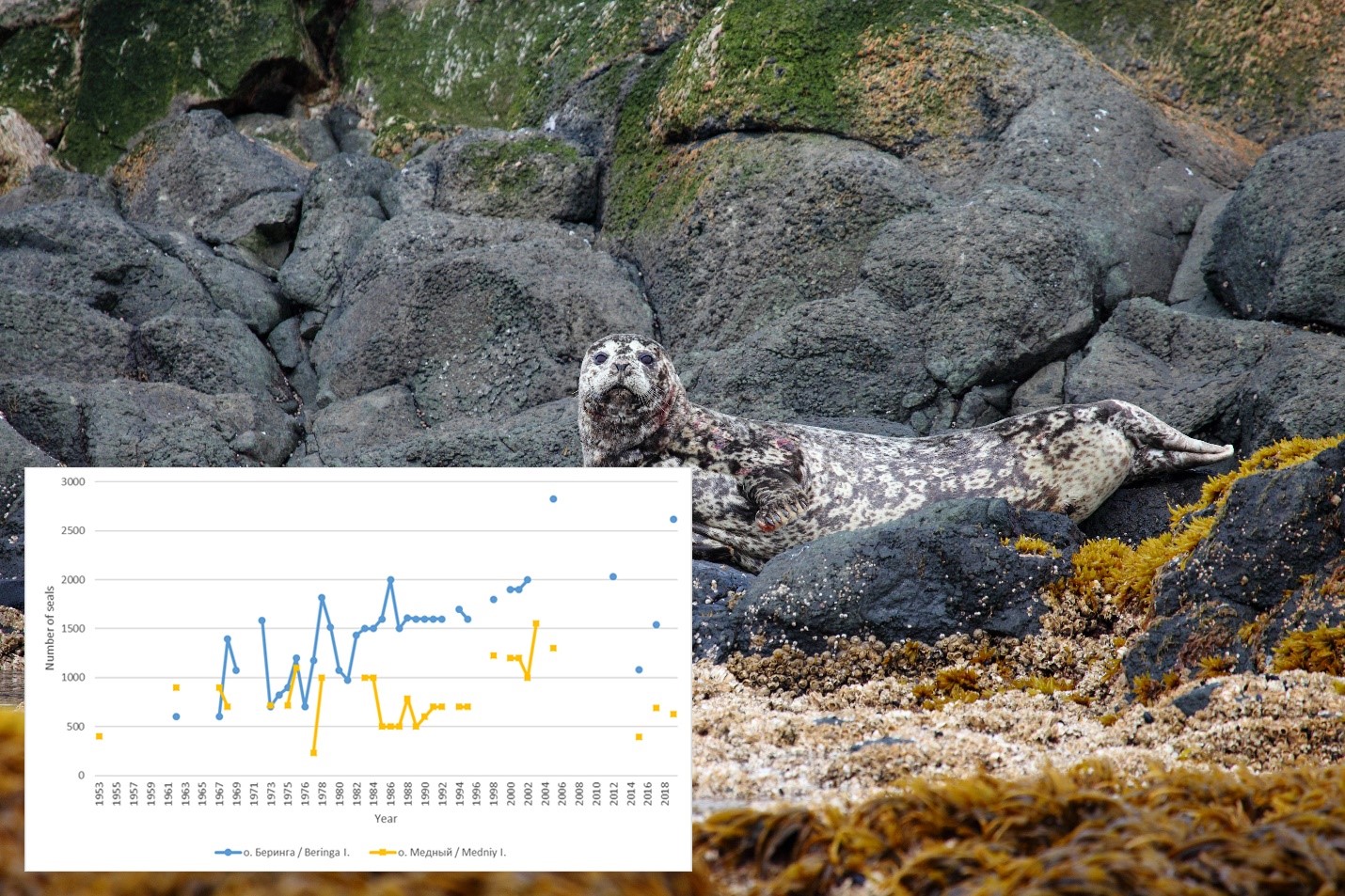
The number of antur in the Commander Islands
Accounting for sea otters in 2019 showed a continuation of the downward trend in numbers. In total, on the two largest islands of the archipelago - Bering and Medny - there are 1673 individuals, which is 45.8% less than in 2016.
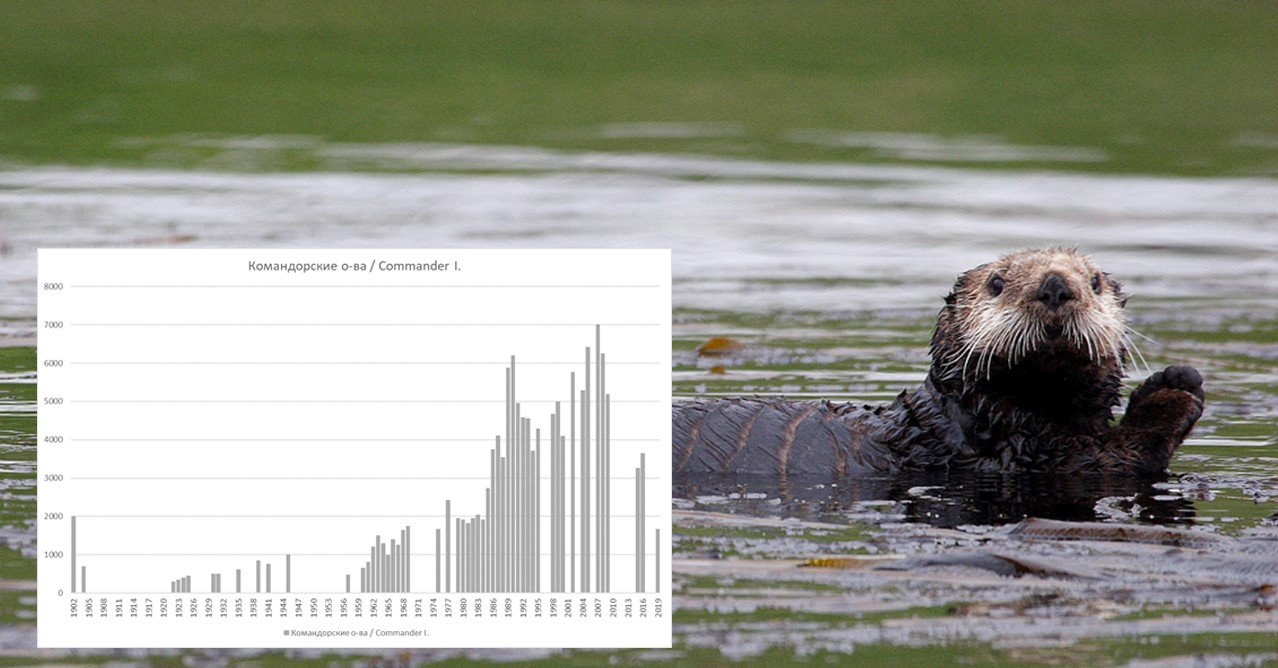
Sea otter numbers on the Commander Islands continue to decline
These painstakingly collected data will allow scientists to better understand the state of animal populations, quickly monitor all the changes that are occurring in the Pacific Ocean common to our countries and adapt measures to preserve them.
In 2020, the meeting brought together 35 participants, which is significantly more than in 2018. The US co-chair, John Bengtson, in his closing speech thanked everyone who had made their way through half the world, and expressed the hope that the group would continue to develop.
The Commander Islands Nature Reserve is pleased to be part of a team of specialists who are keenly aware of the importance of unity. Neither in science nor in the natural world there are borders that could interfere with good neighborliness and joint research.





